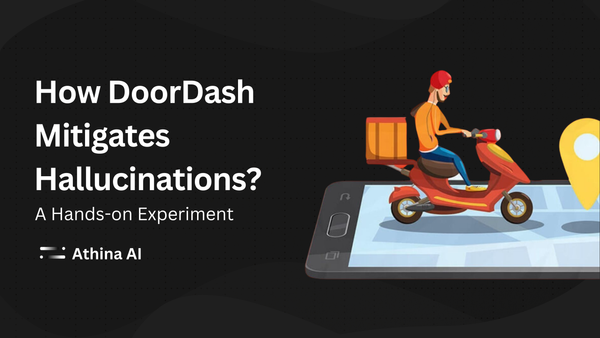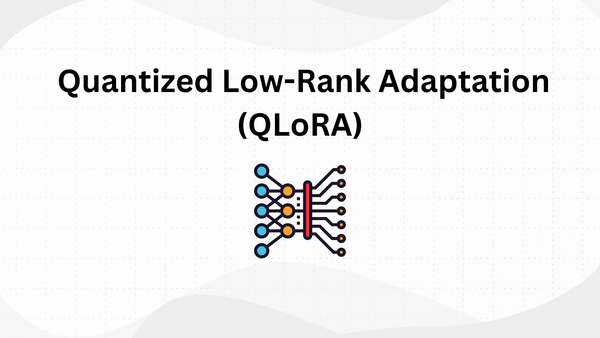Building Effective AI Agents: A Guide to Modern Application Development

Introduction
AI agents are reshaping industries by acting as intelligent systems. They can perceive environments, make decisions, and execute tasks efficiently.
From healthcare to finance, AI agents are transforming everyday processes. In healthcare, they assist with diagnostics.
In finance, they optimize trading strategies, and in transportation, they power autonomous vehicles.
In this blog, we will explore how to create effective AI agents. Key focus areas include their architecture, choosing appropriate algorithms, and ensuring ethical design.
Let’s dive into the steps involved in building efficient and responsible AI agents.
Understanding the Architecture
At the core of every AI agent lies a modular design comprising three fundamental components:
- Perception: This is the agent's sensory system, gathering data from its environment through various input channels.
- Cognition: The brain of the operation, where decision-making algorithms process the collected data.
- Action: The final stage, where the agent executes decisions based on its cognitive processes.
"The collaborative interaction between perception, cognition, and action ensures that AI agents operate smoothly while responding to external stimuli."
Consider an autonomous vehicle as a prime example. Its perception system collects data through sensors, the cognition module processes this information to predict safe paths and avoid obstacles, and the action component controls the car's movements based on computed decisions.
Selecting the Right Algorithms
Choosing appropriate algorithms is crucial for an AI agent's success. Key categories to focus on include:
- Machine Learning Algorithms: Deep Neural Networks (DNNs) excel in pattern recognition and data-driven decision-making.
- Reinforcement Learning: Enables agents to learn through trial and error, optimizing for long-term success.
- Natural Language Processing (NLP): Enables agents to comprehend and generate human language effectively.
- Computer Vision: Empowers AI to interpret visual data, crucial for tasks like object recognition.
When selecting algorithms, factors such as task complexity, available data, and application environment must be taken into account.
Data: The Fuel for AI
The quality of data AI agents receive is critical for their effective operation. Data serves as the fuel for AI, enabling it to learn, make predictions, and make informed decisions.
To ensure reliable performance, the data must be carefully sourced and prepared before it's used in AI models. This involves four important steps.
- Data Acquisition: Gathering relevant information from various sources.
- Data Preprocessing: Cleaning, normalizing, and augmenting data to improve quality.
- Handling Missing or Noisy Data: Using techniques like imputation or filtering to ensure data integrity.
- Ensuring Data Relevance: Aligning data closely with the agent's target tasks.
Training and Evaluation
Training AI agents is an intensive process requiring both high-quality data and significant computational resources. Key aspects include:
- Utilizing GPUs or TPUs for efficient data processing.
- Employing backpropagation to minimize prediction errors.
- Assessing performance through metrics such as: accuracy, precision, recall, and F1 score.
- Testing in real-world or simulated environments to ensure generalization.
- Implementing a continuous improvement loop through fine-tuning and retraining.
Ethical Considerations and Regulatory Compliance
As AI agents become more integrated into society, ensuring that they make ethical and transparent decisions is crucial for building trust and fairness in their applications.
Ethics in AI Decision-Making
- AI agents must adhere to principles of fairness, ensuring they do not make biased decisions.
- Transparency is vital for users to understand how AI makes decisions.
- Accountability ensures there is a system in place to correct mistakes and unethical outcomes.
Mitigating Bias in AI Agents
- Bias in training data can lead to unfair or unethical decisions.
- Thorough data vetting and ongoing monitoring help mitigate bias.
- Regular evaluations ensure AI agents make fair and just decisions.
Regulatory Compliance
- GDPR ensures AI agents handle personal data responsibly.
- HIPAA mandates strict regulations for handling healthcare-related data.
- Compliance with these regulations avoids legal risks and builds credibility.
Ensuring Trust and Transparency
- Developers must create transparent systems that openly communicate how decisions are made.
- Clear explanations of AI's processes build user trust.
- Users should be provided with ways to give feedback or challenge decisions made by AI systems.
The Future of AI Agents
The horizon for AI agents is bright and filled with potential. We can expect:
- Advancements in quantum and neuromorphic computing to enhance processing capabilities.
- Expansion into new domains like education and space exploration.
- Greater autonomy and human-AI collaboration.
- Evolving regulations and international standards for AI safety and ethics.
Conclusion
Creating efficient AI agents requires attention to multiple key elements.
Developers can unlock AI's potential across industries by focusing on architecture, selecting the right algorithms, managing data, and maintaining ethical standards.
Looking ahead, AI agents will continue to grow in importance. Staying updated on advancements will allow us to leverage AI for innovative solutions and expand possibilities in this evolving digital age.



